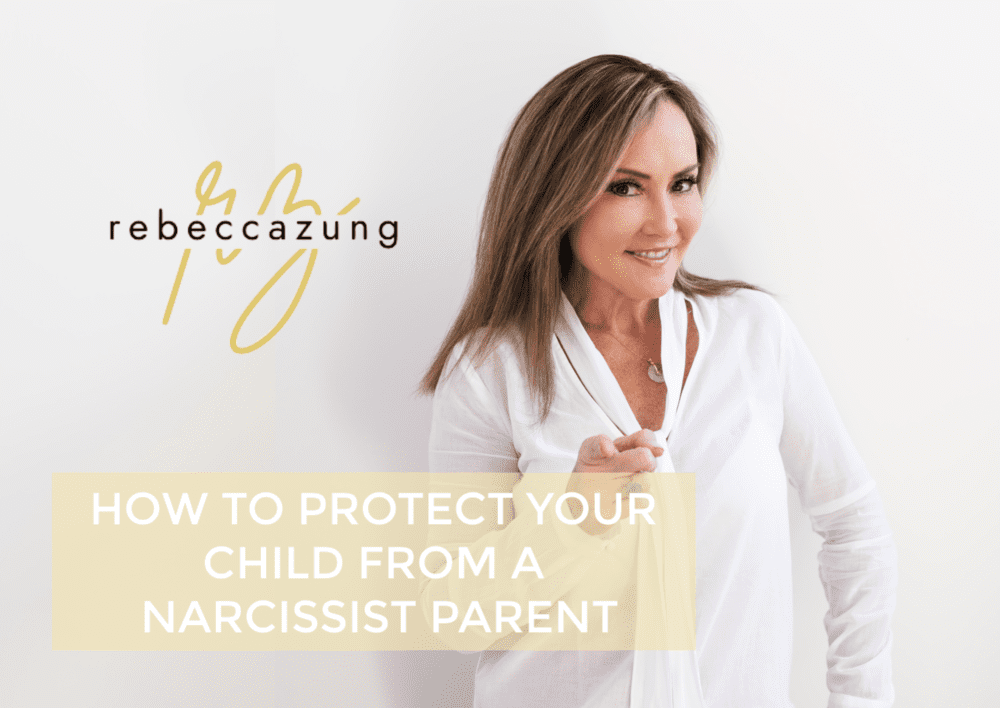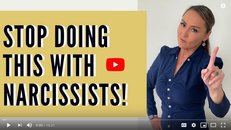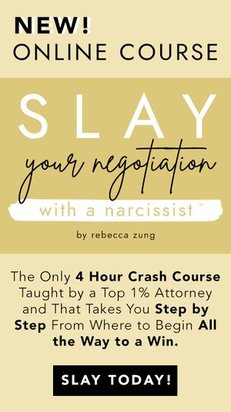
Are you facing co-parenting with a narcissist and want real tips on how to deal with this toxic personality so you can protect your children from them? By the end of this article, you will have advice and tips on exactly how to do just that.
But before I get into that, let me just give you a few ideas of the kinds of things that you’re going to be in for if you are co-parenting with that narcissist. Number one is parental alienation. Most people who are alienators are also narcissists. But they engage in all kinds of things that look like parental alienation, which is a campaign of denigration against you, trying to turn the kids against you so that the kids think that you’re the most disgusting thing that ever walked the planet even if you had a wonderful relationship with them before and they start drip, drip, dripping on the kids in a way that starts turning the kids against you.
It is very serious and very toxic so definitely check out my video on parental alienation, narcissistic parental alienation, if you haven’t already seen it. In addition to parental alienation and the campaign of denigration, they’ll also just personally attack you, not necessarily just to the kids but also just to you. So, they will go on these personal attacks in messages, in person, to third parties, to whoever their lawyer is. In whatever way that they possibly can, they will go on this campaign, a personal attack against you and not to mention twisting everything that you say, gas lighting, manipulating you and on, and on, and on.
The third thing that they’re going to try to do is legal attacks on you. So they will use the system as their sword. They hide behind that. They don’t want to actually have to have a conversation with you unless they think they’re going to be able to control it. So, they will file like 15,000 motions and then obstruct you in every possible way from getting any information and make you run up fees and spend lots of money and then they’ll nicely come to you and say, “Oh, let’s just go have a conversation at Starbucks” or whatever, something like that, but they will use that legal system as their sword, as a means to try to control you.
So what can you do to protect your children from this toxic personality? Let me just say at the outset that there’s no easy answer here. There’s no magic wand. There’s no way to turn that narcissist into a normal person. They have a personality disorder, there’s something wrong inside their head and nothing that you’re going to be able to do is going to be able to change that about them, and the worst thing about narcissists is that, they don’t think there’s anything wrong with them, so they’ll never go and get help. So, the only thing that you can do is control yourself and your behavior, okay? So, let’s just say that at the outset, but there are a few things that you can do to minimize the issues and to protect your children.
So, number one is a custody evaluation. If you decide to get a custody evaluation, you have to file a motion for it unless the other side agrees to doing it. Sometimes they’re so crazy that they want the custody evaluation to try to show the world how terrible you are, which is, kind of their way of projecting their own behavior onto the other person. But it is only in the context of a custody evaluation that you’ll very easily be able to get psychological evaluations done if you just ask for a psychological evaluation without bringing the children into it, without having a best interest reason for it, you probably won’t get it. But if you say that it’s for the best interest of the children, that you are concerned for the children and their welfare when they’re with this person and you put it at issue, then the court more than likely, will agree to order this custody evaluation.
They sometimes don’t, even if they think they should, because sometimes they just feel neither side can really afford it. They do get a little bit costly. It’s certainly less costly than bringing 50 witnesses into the courtroom because the custody evaluator, who is a trained psychologist, does all of that leg work at a much lower rate. So, you do get that in the interview, both of you, they interview the children, they get to come to your home, they get to interview anybody that’s related to the children. They get to observe stuff. They do all kinds of testing, not just psychological testing, but they can do drug testing, they can do testing on somebody’s propensity to be a good parent. There’s all sorts of things that they can do, and so it’s something to consider.
Number two is to stay unemotional, and those of you who are my regular listeners and viewers know that I say this all the time, and yet it is the hardest thing to do because they definitely know how to push your buttons. They definitely know how to get under your skin and they will definitely try. So, they will taunt you, goad you, do whatever they can to get you to respond and get down on their level and hopefully get you unglued so that they can use that against you. So, stay as unemotional as possible. That’s tip number two.
Tip number three is, if you really do believe that you or your children are in danger, don’t wait to call your lawyer. Please call the police. There are other people that can help you as well. Sometimes there are shelters for abused women or shelter even for men who are abused. Don’t just sit there like a sitting duck. Please call the police, and once you do call the police and you do have a record of threats and things like that, you can potentially try to go get an injunction, also sometimes called a restraining order, and it’s a little bit difficult for me to quantify when you can get a restraining order or when you can’t.
The one thing I will say though is, that if you decide to try that path, to hire somebody, a lawyer who really understands the system and understands the statute, because you want to make sure that it sticks if you do get it. The worst thing in the world is to try to go get one and then have it be dismissed because then the other person feels empowered. So, you’re going to want to make sure that you’ve got enough. Unfortunately, even if you feel in fear and you don’t really have any way to prove why you’re in fear, you probably won’t get one, but if you are in real danger, of physical abuse or stalking, something like that, please call the police.
Number four, what you can do is use a co-parenting app that can help you minimize the interaction between the two of you because sometimes just the escalation of interaction between the two of you becomes a danger to your children. So if you want to protect your children, then minimizing the fighting and the back and forth and all the toxicity and poison that’s going on between the two of you will definitely help to protect your children. So, more than likely you’ll have to get a court order. More than likely the other person won’t agree to it. Even if they do agree to it, have that agreement or stipulation turned into court order so that the other person is ordered to use it because if they’re a narcissist, they’re not going to want to use it. Even if they’re court ordered to use it, they’ll still try to figure out ways around it. Well, we’re here right now, let’s just talk, or oh, it’s too hard to use the app. I’m just texting you. They’ll still try to find ways around it, but then at least it’s a violation of a court order.
My next suggestion is non-disparagement clauses and those can be written right into a parenting plan where it says, neither parent is allowed to talk badly about the other parent to the children. Now, I’m going to tell you that most of the time I find these kinds of clauses to be aspirational rather than actually useful because it’s really hard for a court to enforce them. Even if you have proof, even if you have a text message from the parent to the child that says, mommy is a loser or daddy is a drunk. Even then, the judge is probably just going to go, don’t do it again because it’s really hard to enforce that kind of an agreement. So my suggestion to you is to have some kind of extra thing written into the agreement that helps you enforce it, like if the person violates it, then the person who violated that clause loses the ability to have ultimate decision making authority on one particular area or another like medical or educational or something like that. Oh, and the person who violates it has to pay both sides fees or something like that. Give the judge some kind of teeth to be able to enforce that court order.
Number six is document, document, document. You better document every single thing. Have the notes section open to your phone or use an app or whatever you need to do. I’ve won entire court cases on documentation, so if a person’s late or they didn’t show up to take the kids or whatever, so that down the road you could potentially modify that parenting plan so that you get more time sharing than the other person does.
And the last one is to get therapy for your child. You might have to get a court order for this. You might have to go to the judge and say, my child needs therapy because if the other person doesn’t agree to it, which if they’re a narcissist, they probably won’t because they probably don’t believe in therapy when they’re afraid of what therapists might uncover or say about them, or they just won’t agree to it because that’s what you want and they just don’t want to give you what you want. So, you might have to go and ask the court to order that it’s okay. But give your children an outlet, give them a place that’s protected for them to talk about what’s going on and how they’re feeling about the entire situation. Some states do actually have statutes that say that only one parent’s permission is needed for therapy. So you’ll have to check with your lawyer on what is needed for ordering a child to therapy in your particular state.
If you are dealing with a narcissist and you want to know more about how to communicate with them, come join me at my FREE Webinar, the 3 MUST HAVE Secrets for Communicating with a Narcissist. You can sign up for that RIGHT HERE.














